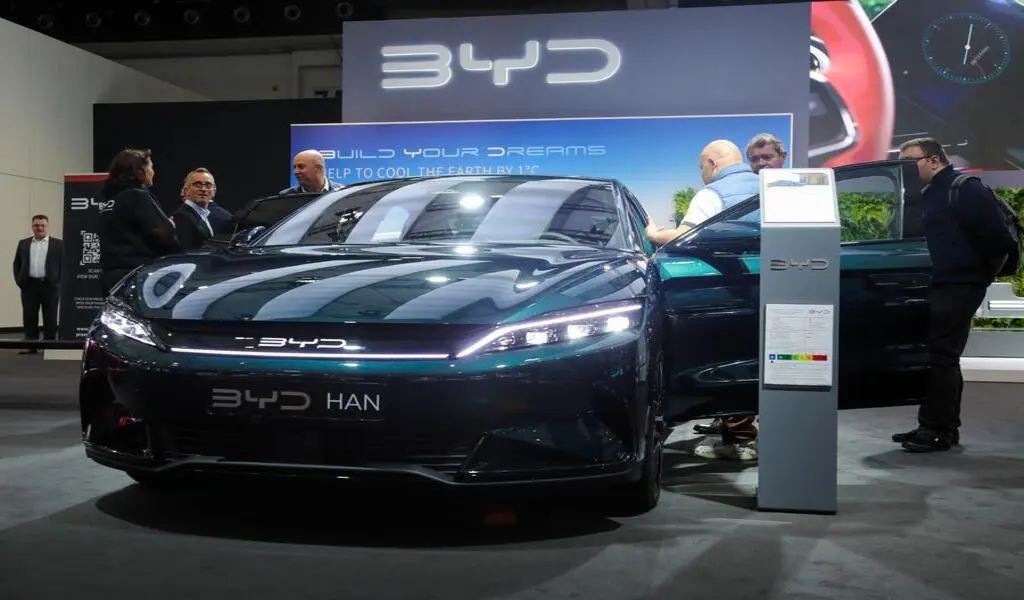BANGKOK – Thailand’s once buzzing EV showrooms have turned uneasy. A sweeping recall from BYD, its largest to date, has rattled buyers and dealers already worn down by service delays and a long price war. The company is recalling more than 115,000 vehicles worldwide over design faults and battery risks.
Thai owners of the Yuan Pro and Tang are now asking how safe their cars really are and how long they will wait for parts in a system under strain. The blow lands as EV sales stumble, discounting escalates among Chinese brands, and Neta Auto’s collapse leaves dealers out of cash and owners in limbo.
Thailand, often called the Detroit of Asia for its manufacturing heft, is in the middle of a hard reset. Japanese makers such as Toyota and Honda once ruled, but Chinese EV brands have seized ground with fast launches and heavy incentives.
The shine has faded. EV sales fell 10 per cent last year, while the total car market shrank 26 per cent. Analysts point to record household debt, tighter lending by banks, and a flood of cheap imports that have sparked a price war and drained confidence.
The recall, announced on 17 October by China’s State Administration for Market Regulation, covers 71,248 Yuan Pro EVs built in 2021 to 2022 due to battery sealing problems that could cause overheating, and 44,535 Tang plug-in hybrids from 2015 to 2017 for faulty drive motor controllers.
BYD Will Fix for Free
Most vehicles are in China, yet Thailand, BYD’s biggest overseas base with more than 38,000 registrations since 2022, is preparing for spillover. A Bangkok fleet operator who bought five Yuan Pros said he has told drivers to park them away from crowds and is bracing for delays, with little clarity on parts or timelines.
BYD Thailand says fixes will be free at its network of more than 60 dealers and that service capacity will be maintained. The timing is still awkward. Charging access outside major cities remains thin, and the sales slump has been sharp. Pure EV registrations fell 15.6 per cent year on year in early 2024, then crawled back to roughly 66,000 units through mid-2025.
The Federation of Thai Industries expects only 600,000 total vehicle sales in 2025, a small rise from 570,000 last year, and well below pre-pandemic highs. The head of the EV Association of Thailand says buyers are nervous, trusts are strained by recalls and bankruptcies, and banks are tougher on car loans.
Price-cutting has turned brutal. The squeeze began in China, where too much capacity pushed margins down to 4.3 per cent. BYD set the tone in Thailand in 2024, chopping prices by up to 20 per cent on models such as the Atto 3 and dropping some versions below 25,000 dollars, undercutting Japanese rivals.
Great Wall Motor, Changan, and GAC Aion followed with 10 to 20 per cent cuts to win footfall. A senior Great Wall Motor Thailand executive summed it up as a fight to survive, then warned the cycle of discounts trains buyers to wait, which drains cash across the sector.
Neta Bankruptcy
Neta Auto has been the first major casualty. The brand once held 12 per cent of Thailand’s EV market in 2023, selling 12,000 units that year.
Its parent, Zhejiang Hozon New Energy Automobile, filed for bankruptcy in June 2025 with 1.4 billion dollars in debt and losses above 1.4 billion dollars. A rapid push to grow gave way to service backlogs, parts shortages, and a 48.5 per cent sales drop in early 2025.
The crash has been harsh for Thailand. Neta’s dealer network has shrunk from 60 to 40 outlets, and more closures may follow. Unpaid subsidies worth up to 400 million baht have left dealers short of cash.
One operator in Nonthaburi says orders went unpaid, and legal action for 200 million baht is underway. Another large group has closed eight of its eleven sites, citing broken trust with buyers and suppliers.
Owners are bearing the brunt. More than 20,000 Neta drivers face months-long waits for repairs, often near ten months, and worry about warranties. A teacher in Chiang Mai who bought a Neta V in 2023 has turned to third-party cover after a failed central display unit and says parts are impossible to get. Insurers, including Allianz Ayudhya, are raising premiums or billing owners directly, wary of failing after-sales support.
Dealer Discount Practices
Thailand’s Office of the Consumer Protection Board has begun a class-action review and called in Neta executives to protect customers. The Excise Department, enforcing EV3.0 incentives, has ordered Neta to build 19,000 units locally this year.
Only about 4,000 have been produced so far, which makes the target improbable. Officials say Neta Thailand is a distinct entity, yet the parent’s problems could spill over.
Thailand still aims for EVs to make up 30 per cent of production by 2030, though experts caution that price alone cannot drive durable growth. Quality, service and stable finance will matter most.
BYD looks stronger than its peers, with a new plant in Rayong capable of 150,000 vehicles a year, and it remains largely intact for now. Even so, its Thai operations drew scrutiny in 2024 over dealer discount practices, which keeps pressure on its brand.
For drivers like the Bangkok fleet owner, the promise of affordable electric cars now feels risky. He had hoped for progress, yet he is parking cars and waiting for answers. With recalls piling up, brands slashing prices, and one rival already down, Thailand’s route to mass EV adoption looks bumpy and far longer than planners expected.














